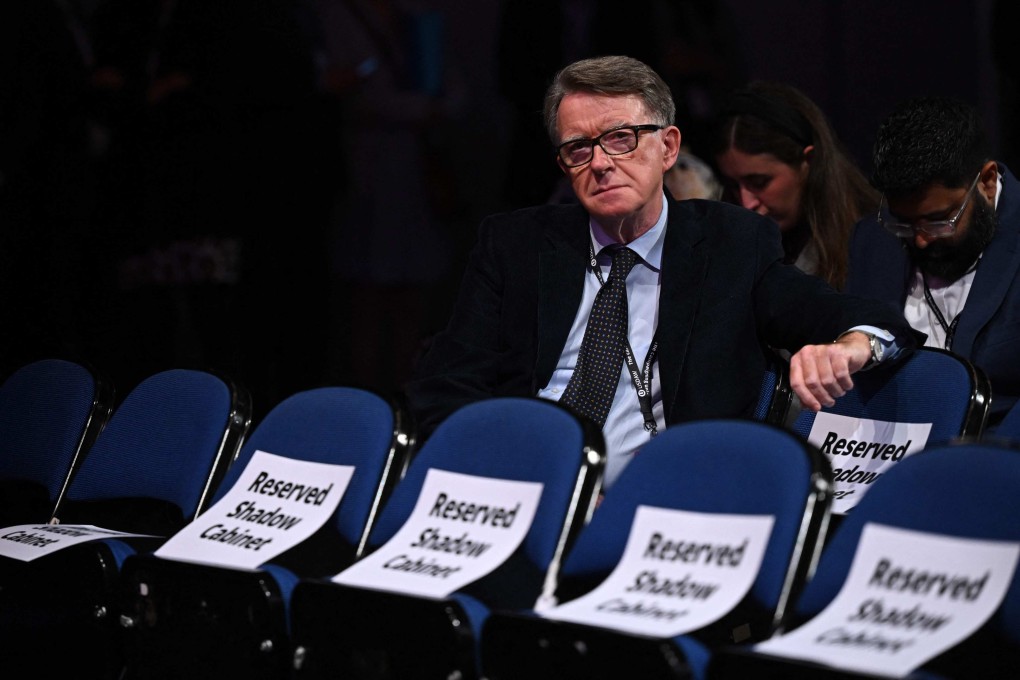Advertisement
UK’s Truss needs ‘more realistic’ China approach during ‘hyper’ tense time says Mandelson, adviser to ex-PM Tony Blair
- Peter Mandelson, a leading figure during Tony Blair’s premiership, said ‘we need to allow steam out of increasingly confrontational situation’
- New PM Liz Truss is known for her harsh China rhetoric, but Mandelson said Britain was out of step with the rest of Europe
Reading Time:3 minutes
Why you can trust SCMP
26

Dewey Simin Singapore
Britain’s leaders should adopt a “more practical and realistic” approach when dealing with China amid a period of “hypertension”, a former senior UK government official has said.
In a wide-ranging interview with This Week In Asia, Peter Mandelson, a leading adviser and influential figure in the British Labour Party during the era of Prime Minister Tony Blair, also condemned new leader Liz Truss and her economic policies that have sent the pound plunging to an all-time low.
“We are seeing a sea change in politics towards China and I hope that China won’t overreact. We need to allow steam out of this situation which is increasingly confrontational,” he said on the sidelines of the Milken Institute Asia Summit in Singapore on Thursday.
Advertisement
Mandelson, who now heads public policy advisory firm Global Counsel, suggested that the wave of anti-China messaging in the West first started in the United States under former leader Donald Trump but has since festered in Britain.
Truss, who became premier this month after succeeding Boris Johnson as the leader of the Conservative Party, has been known for her harsh rhetoric on China and in August unveiled plans to classify Beijing as a national security threat.
Advertisement
If materialised, the move would have a “disastrous effect” on Britain’s trade and investment ties with China, said Mandelson, a former European Trade Commissioner.
Advertisement
Select Voice
Choose your listening speed
Get through articles 2x faster
1.25x
250 WPM
Slow
Average
Fast
1.25x